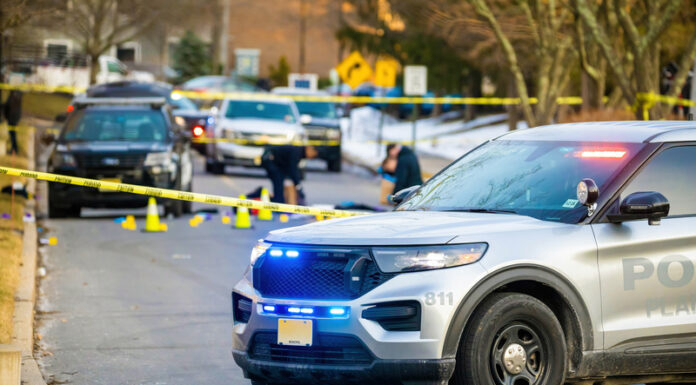A typical traffic stop in Humboldt Park, Chicago, Illinois, involving a Black driver took a tragic turn, ending in the death of 26-year-old Dexter Reed. The incident has led to a citywide examination of police procedures and interactions.
On March 21, 2024, undercover officers in an unmarked car attempted to stop Reed for an alleged seatbelt violation, according to body camera footage released by the Civilian Office of Police Accountability (COPA).
By April 8, COPA and an independent expert confirmed that Reed, 26, appeared to have fired the first shot in the exchange that resulted in his death and injured a Chicago Police officer.
The body camera footage, released on April 9, consisted of more than 30 videos and showed that a bullet from Reed’s gun struck an officer before the ordeal ended. Questions have been raised regarding why five tactical officers focused their attention on Reed.
The incident transpired on the 3800 block of West Ferdinand Street in Humboldt Park. Reed was pulled over by five plainclothes officers from the Chicago Police Department (CPD) tactical unit in an unmarked car. The footage showed the officers ordering Reed to lower his window and questioning his actions. The situation escalated quickly when Reed started to close the window after initially lowering it, and the officers demanded that he unlock his vehicle doors.
There has been skepticism from COPA about the initial reason for the stop—a purported seatbelt violation. COPA confirmed this account in a press release on April 9. Andrea Kersten, COPA’s Chief Administrator, sent a letter later that day to Police Superintendent Larry Snelling, questioning the stop’s legitimacy. She expressed doubts about the officers’ ability to observe the seatbelt violation due to their position and the car’s tinted windows. This has raised substantial concerns about the validity of the traffic stop that led to Reed’s interaction.
Kersten’s letter went on to describe how Reed fired towards the passenger side after officers demanded he lower his windows and unlock his doors, injuring an officer. Reed initially stayed in his vehicle, later crashed into a parked car, exited his vehicle, and left his firearm on the front passenger seat before trying to escape. The officers continued firing at Reed, who was unarmed at this point, hitting him multiple times until he collapsed. One officer fired three additional shots at Reed while he was motionless.
Kersten noted the officers fired approximately 96 shots in total, with one officer discharging about 50 shots, including the final three while Reed was motionless. This raises serious questions about the proportionality of their use of deadly force.
Mayor Johnson, after meeting with Reed’s family, expressed his sorrow over the incident, particularly in light of wider concerns about young Black men’s interactions with police. Legal analyst David Harris and former CPD First Deputy Supt. Anthony Riccio noted the valid return of fire if Reed shot first but raised important questions about the conduct and rationale for the stop.
Dexter Reed’s family, still in mourning, has expressed doubt about the official account of his shooting, as stated by their attorney, Andrew M. Stroth.
Reed’s sister, Porscha Banks, spoke to the media about the deep loss her family is experiencing, emphasizing Reed’s importance as a brother, son, and uncle. The family, highlighting Reed’s ambitions and talent in basketball, is calling for a thorough investigation of the incident. They argue that the shooting was illegal, noting that the plainclothes officers did not identify themselves as police.
The medical examiner ruled Reed’s death a homicide, stating he died from multiple gunshot wounds. The investigation into the shooting has become a focal point of grief, outrage, and demands for systemic reform. As officials promise transparency and the Reed family seeks answers, the community is grappling with the fallout from those 41 seconds—a brief period that has profoundly changed lives and sparked a renewed examination of police practices.
This incident adds to the national discourse on law enforcement’s use of force, with Chicago’s own history of such incidents being closely scrutinized. As COPA and the Cook County State’s Attorney’s Office dig into the specifics of that March night, the questions raised go beyond the case details, touching on broader issues of policing, community trust, and the pursuit of justice following acts of violence.








